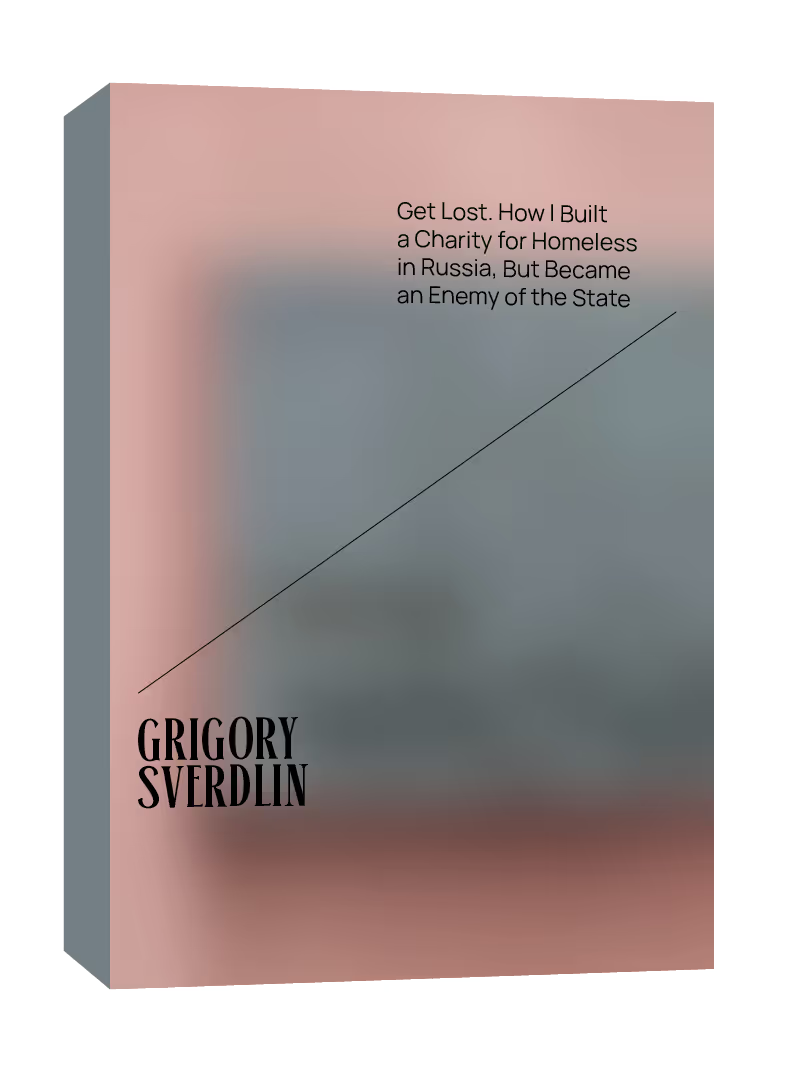In 2009, Grigory Sverdlin worked at a bank and had a potentially lucrative career ahead of him. However, he chose a completely different path: he quit his job and went to work for Nochlezhka (The Shelter), the most notable Russian homeless charity. Just like many liberal-minded Russians in those years, Sverdlin wanted to build a better future for his country, and hoped it could be achieved through working in the third sector, which has just started to be a significant social force. Soon, Sverdlin became Nochlezhka’s director. At his job he was building infrastructure, lobbying government officials for the rights of the homeless, and fighting for establishing soup kitchens in Moscow city center. After work, he participated in opposition rallies which protested criminal decisions of the same officials and which were often brutally suppressed by the police.
By the end of 2010s, Sverdlin saw his hopes for building a better future through an NGO fading away. Then, Putin started the war in Ukraine. Sverdlin left Nochlezhka and Russia and created Idite Lesom (Get Lost), a civil resistance organization providing aid to Russian men who want to evade conscription and Russian soldiers who want to desert or surrender to Ukraine. Because of these actions, he was invited to speak at the US Congress, and got slapped with a felony case in Russia.
In his book, Sverdlin recounts his unique journey through the lens of a generational narrative. Even in Putin’s era, there had been an entire cluster of Russians who honestly wanted to help their fellow citizens, either changing the system from within or creating a civic infrastructure parallel to the state. Why did these efforts fail? Was it worth it? How much of a compromise was too much? And how can charity work become a way to fight warmongers? “Get Lost” is a harrowing story of both personal and communal struggle, defeat, resilience and, ultimately, hope.
GENRE
STATUS
SAMPLES
RIGHTS
A former brand manager, Grigory Sverdlin started volunteering for charity in the mid 2000s, and several years later decided to fully devote himself to a new calling, making Nochlezhka one of the most renowned charitable organizations in Russia. He was one of five Russian charity managers who was chosen to participate in an educational program in social finances launched by the Saïd Business School at the University of Oxford. At the same time, he was a politically active Russian citizen, protesting against Putin’s government authoritarianism. After the start of the full-scale war in Ukraine, Sverdlin decided to leave Nochlezhka and Russia, and started a new project — Idite Lesom (Get Lost), which helps Russians who don’t want to participate in Putin’s criminal war. So far, Get Lost has helped more than 40,000 people. In September 2024, the NY Times magazine devoted a 35,000 words story to Sverdlin’s project.





